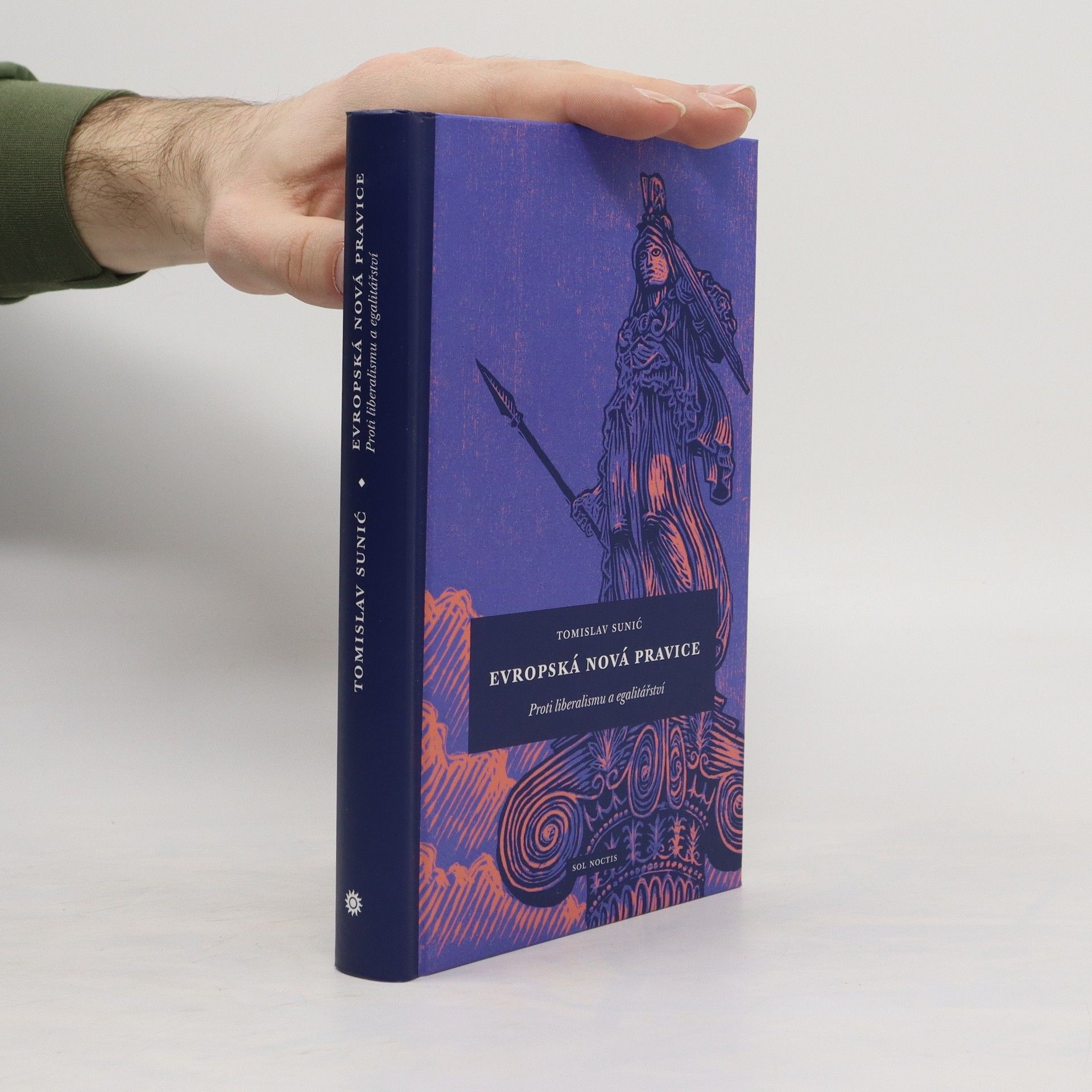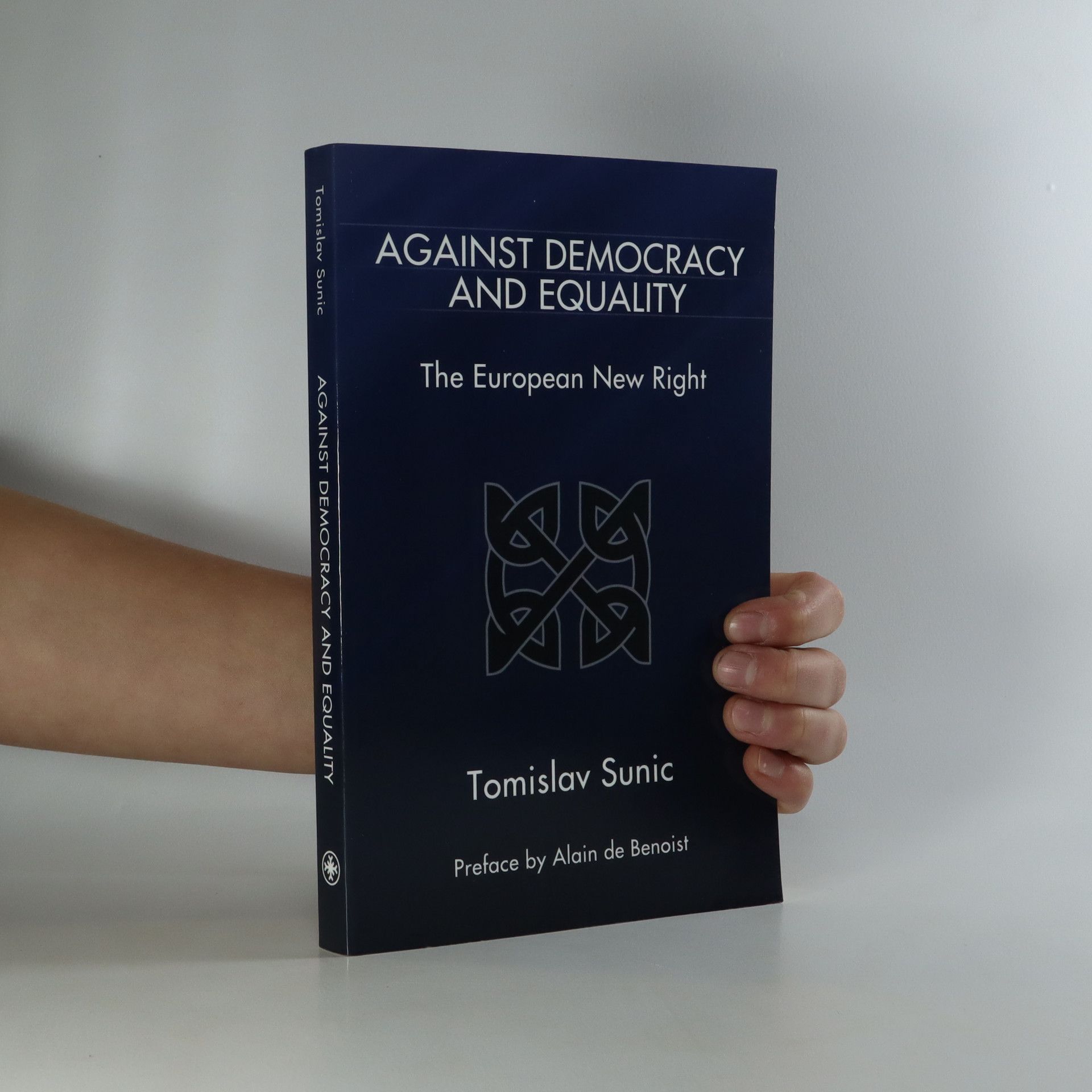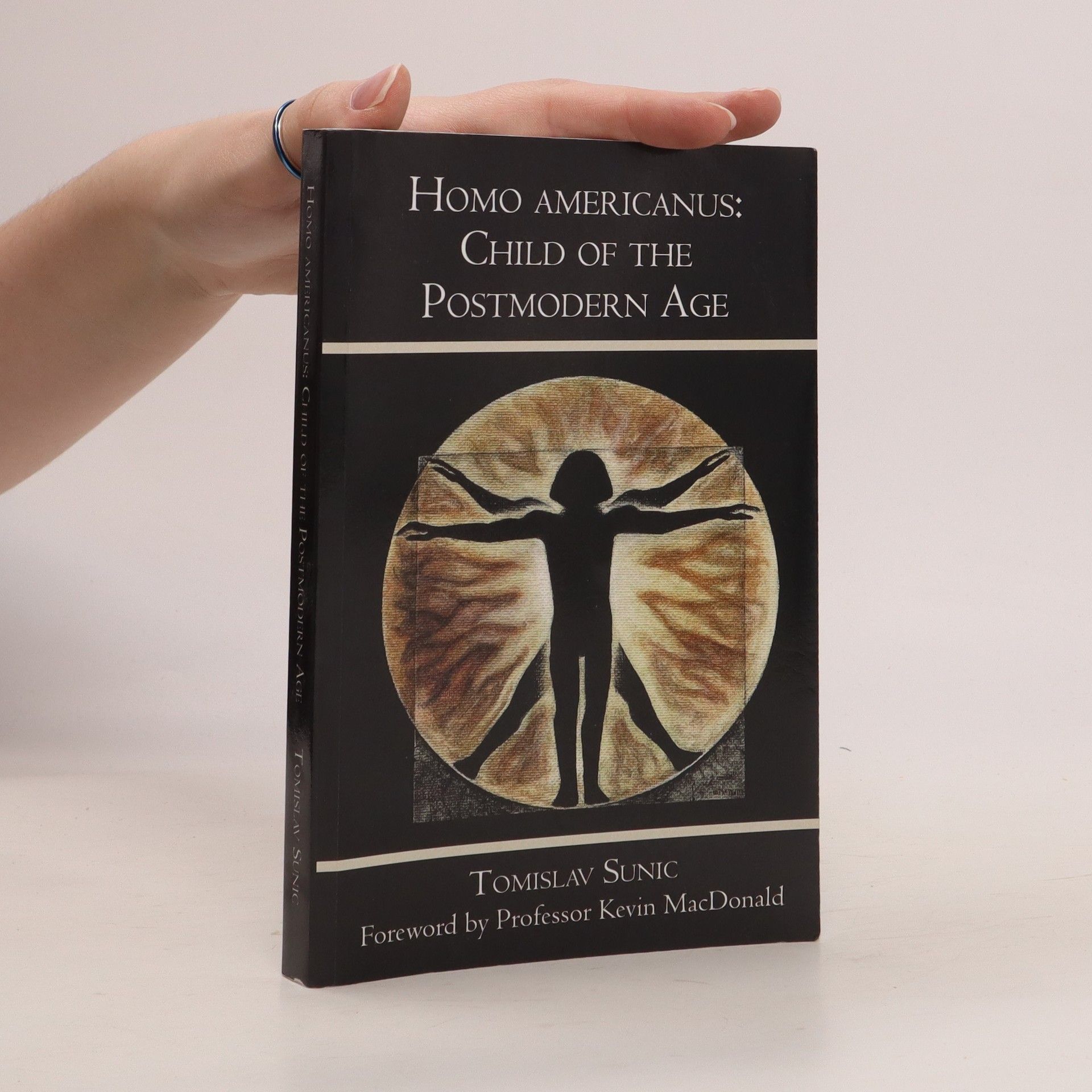Homo Americanus
- 252pages
- 9 heures de lecture
In this book Dr. Tomislav Sunic describes the origins and dynamics of America's founding myths. Quoting and translating from many long-forgotten or suppressed sources from the fields of literature, history, anthropology and philosophy, the book represents an interdisciplinary compendium dealing with the topic of Americanism. The genealogy of early Calvinist Puritanism mixed with the techno-scientific religion of boundless economic progress and legally veiled in the obscure para-Biblical and Jewish-inspired sense of political self-chosenness, created a system that has little in common with its original design. Postmodern Americanism, with its abstract theories of multiculturalism and its global desire for world improvement, turned America into a menacing and self-destructive continent that puts not only the survival of America's European heritage at risk, but threatens the heritage of other peoples worldwide as well.


